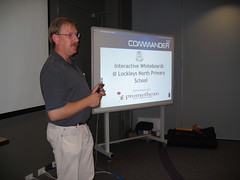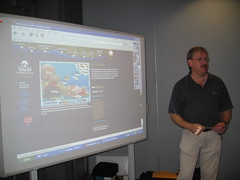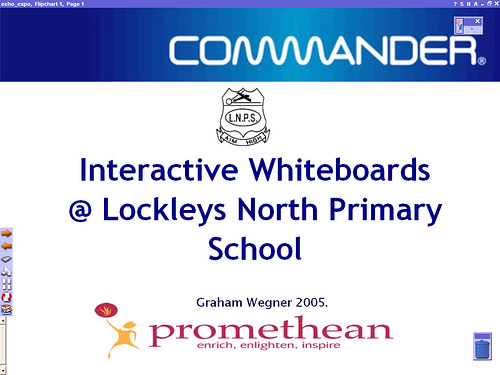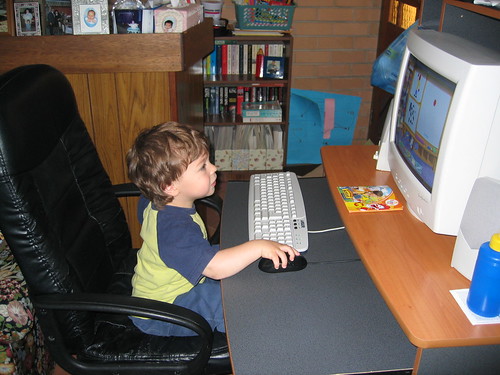A recent post from Doug Johnson, Personal use of the Internet, has got me thinking about appropriate use of this resource by students and access to appropriate material via the service provider's filter system. This has been a real hot topic amongst edubloggers during the past week or two and James Farmer's original post has taken on a life of its own. (Might be the most comments posted to an edtech blog ever!) So the two ideas have been swirling around in my head and I'm still not sure of my personal position yet. See, the filters here in Oz are designed with students in mind but educators use the same system and are blocked in the same way as the kids. The providers here use a system to filter sites called Bess produced by Secure Computing. So instead of making assumptions I visited their website for further information. From what I saw, the Bess filter uses a system of categories to rate all websites on a Control List which then determines what sites are either blocked or allowed. Guess where blogs fall? In a category called Personal Pages where the following description can be found and I quote:
This category includes personal home pages that share a common domain such as those hosted by ISPs, University/Education servers, Free Web Page hosts, etc. Blogging sites are also included. Personal home pages present a risk to viewers because content ranges from harmless to offensive, yet these pages are not highly trafficked, making them difficult to categorize and provide coverage for each personal page.
You can also use a tool there called the URL Checker where you can see what URL ends where in terms of categorisation. Edublogs ends up in Personal Pages, as does my blog. Weblogg-ed ends up in a different legitimate category Education/Reference, Forum/Bulletin Boards. D'Arcy Norman scored a Not Categorized as does James Farmer's own blog . Stephen Downes also ends up in Personal Pages. So it's a bit of a chook raffle about which blog ends up where and who will be blocked in a school or not. Now I need to check these blogs against my own school filter (Bess N2H2) to see if this is the same version and I think that administrator control can release a lot of blocked content that shoudn't be. I think I need to poke around a bit more but I do think it is something that needs addressing. I mean, if a teacher is getting keen on blogging and can't access any blogs to see what the fuss is about, they might not engage and move on. Likewise if there are too many barriers, then student blogging is unlikely to follow. I agree that there is a lot of trash out there that as a parent of a primary school aged child, I wouldn't like them to stumble across. But do I filter at home - no. Perhaps I should and there are definite taboo topics I think that we don't want our young children encountering on their own. And there is a lot of evidence to say that a lot of teachers aren't skilled enough to navigate their own way safely through the World Wide Web, let alone be totally responsible for the content their students encounter. I suspect there is an element of "Thank goodness there is a filter. Any chance of getting World Championship Wrestling blocked. I'm sick of my kids downloading images of wrestlers."
Which brings me back to the starting point with Doug's post. What is the internet at our schools? Is it part of the whole fabric where students can continue their online existence or is it just a powerful resource to be turned on and off by teachers' direction? I think we are all grappling with that one - some people can make statements with more conviction than others but our educators do need to try and view the online connection through their students' eyes and what it means for them. Hmmm....a lot more thinking to do.




